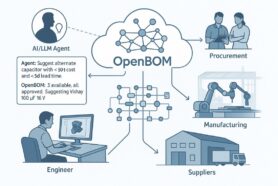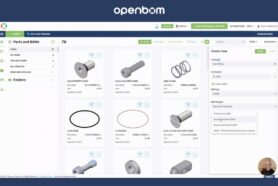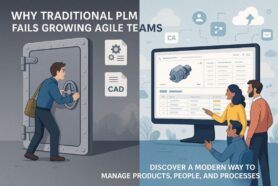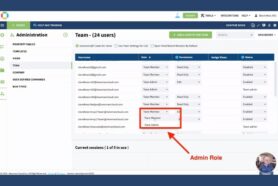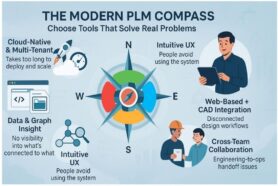
It is clear that in this day of age, manufacturers need to collaborate with their partners to improve their business. Some manufacturers rely on 3PL, warehousing, software, or others to help improve their development or product distribution.
As the supply chain complexities grow, competition increases, and disruptions that impact global manufacturing loom over us have made it critical for manufacturers to be able to navigate these obstacles to better make decisions. Manufacturers of all sizes have found OpenBOM as a solution to not just manage their product and manufacturing data but as a way to communicate with their suppliers. As a result, manufacturers who leverage OpenBOM are able to better collaborate with their suppliers to improve their output, quality, lead time, and pricing.
Why Collaboration with Suppliers Matters
The main goal of collaborating with your supplier is to improve your business as a whole. Manufacturers see the value they provide their organization and rely on their specialized expertise and experience. Here are the main reasons why manufacturers collaborate with their suppliers.
Expertise and Resources
One of the most valuable parts of collaborating with your supplier is that you have access to their expertise and resources. Suppliers usually have specialized knowledge about the processes, fabrication, and materials used in manufacturing your product. Collaborating with them will help you to improve your product by reducing costs, improving quality, and accelerating time-to-market.
Better Communication and Trust
Collaborating with your supplier will also improve your overall communication with them which as a result improves trust. Working closely with your supplier will also help to identify and address any issues that may arise during production or the product development process.
More Efficient Supply Chain Management
Collaborating with your supplier will help identify risks and disruptions that are in the global supply chain. As a result, you will not be dependent on one supplier for a particular component and you’ll be able to shift sub-tier suppliers quickly and efficiently.
Better Long-Term Relationships
Working together with your supplier can build trust and mutual understanding. All of this paves the way for a more sustainable relationship.
Why Suppliers Need to Adapt OpenBOM
Suppliers are always looking for ways to improve their customer experience and to reduce the barriers to development, the purchasing process, and the production process. Suppliers adopting digital technologies, such as automation internet of things (IoT) is important because it can help suppliers improve their overall efficiency and productivity.
Make Decisions Faster
In order to make decisions, you need to have data. You need to update this data and share this data with other stakeholders. Manufacturers who introduce OpenBOM to their suppliers will be able to quickly get the following information:
- Alternative components for parts
- Lead times
- Transparent pricing
- A list of all changes and revisions
An Efficient RFQ Process
Whether you are evaluating and selecting a new supplier or using an existing contract manufacturer (CM), you will eventually need to pass data to your supplier. This transfer of data is known as the request for quotation (RFQ) process.
Streamline your Product Development Process
One area that manufacturers rely on their production partners to help out with is design for manufacturing (DFM). OpenBOM incorporates a change request workflow that enables suppliers to request changes instead of implementing unapproved changes. This ensures governance and control through the development process.
Keeps you Connected to your Data 24/7
Having access to your data 24/7 is important. You don’t want to wait for your supplier if your boss or colleagues are requesting important information about which parts were used on a specific PO. You should know this instantly.
How OpenBOM Improves Collaboration
As we know, having instant access to the most up-to-date information about your product is important. You don’t want to wait for someone else to provide this to you, especially if you are pressed for time. OpenBOM can improve collaboration with your supplier or team in a number of different ways.
Real-Time Data Synching
Real-time data syncing ensures that all stakeholders have access to the most current product information. This eliminates the need to send emails and to exchange numerous spreadsheets back and forth.
Easy Sharing Capabilities
OpenBOM makes it easy and simple to share data with anyone. You can also set permissions so the user viewing the data can not see any sensitive information that is not relevant to them. The best news is that you don’t pay for each user that is added to the account making it easy and cost-effective to scale.
Your Single Source of Truth
A common pain is working on different data. This is common when sending spreadsheets back and forth.
If you are sending spreadsheets back and forth then your supplier can be working on old data. As a result, they can purchase incorrect parts, quote the wrong revision, and others. All of this result in extended lead times and increased costs.
What can you do Today?
If you are looking to improve collaboration with your supplier, then you should try out OpenBOM. OpenBOM provides you with a free 14-day trial so you can fully evaluate the system.
OpenBOM is a cloud-based PDM & PLM platform to manage your engineering and manufacturing data. Companies from startups to Fortune 500’s use OpenBOM to create a centralized database to bring in, store and manage their manufacturing data. With this infrastructure, users also use OpenBOM to streamline both their change management and PO processes.
If you need to improve the way you manage your data and processes, contact us today for a free consultation.
Regards,
Jared Haw
Join our newsletter to receive a weekly portion of news, articles, and tips about OpenBOM and our community.





